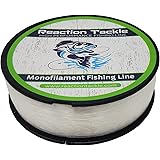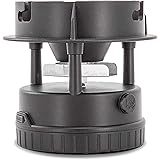The sudden onset of a nagging cough can disrupt daily life, especially when you’re far from the convenience of a pharmacy or traditional medical care. This common ailment can be particularly bothersome for outdoor enthusiasts, campers, or those seeking self-sufficiency in remote settings. As seen in the accompanying video, the search for quick relief often leads to exploring unconventional remedies, sometimes even prompting a curious dive into ideas like “soy sauce cough medicine.”
While the sounds of struggle and eventual relief in the video might spark curiosity about this unusual home remedy, it’s crucial to understand its context and effectiveness. Many people are eager to find natural or readily available solutions when traditional options are scarce. This exploration delves into the intriguing concept of using soy sauce for cough relief, examining its origins, potential mechanisms, and comparing it with more established natural alternatives.
Decoding the “Soy Sauce Cough Medicine” Buzz
The idea of using soy sauce as a cough remedy might seem unusual, even bizarre, to some. However, folk remedies often arise from practical observation, cultural practices, or simply from experimenting with readily available ingredients. The concept of “soy sauce cough medicine” is not widely recognized in Western conventional medicine, but it occasionally surfaces in discussions about unconventional home treatments.
Typically, this remedy involves mixing a small amount of soy sauce with other ingredients like honey, ginger, or even a dash of hot water. The rationale, albeit unscientific, often centers around the idea that the saltiness might soothe a sore throat or that other components in the concoction could provide relief. It’s a testament to the human desire to alleviate discomfort using whatever is on hand.
Exploring the Possible (But Unproven) Mechanisms
When considering soy sauce for cough relief, it’s difficult to point to any direct, scientifically validated mechanism. Soy sauce is primarily a fermented condiment made from soybeans, wheat, water, and salt. While it’s a staple in many cuisines, its primary function isn’t medicinal.
Some might theorize that the saltiness of soy sauce could have a soothing effect on an irritated throat, similar to a saltwater gargle. Saltwater gargles are indeed recommended for sore throats because salt helps draw out fluid and reduce swelling, which can temporarily alleviate discomfort. However, swallowing highly concentrated salty liquids like soy sauce for a cough is a different matter, and its efficacy as a direct cough suppressant or expectorant is not supported by research.
Another perspective might link it to the umami flavor, suggesting it could distract from the irritation. However, this is largely anecdotal. The absence of active antitussive (cough-suppressing) or expectorant compounds in soy sauce means any perceived benefit is more likely due to a placebo effect or the inclusion of other ingredients alongside it.
Folk Remedies and Their Place in Health Management
Throughout history, communities have relied on folk remedies for various ailments, especially when medical science was less developed or inaccessible. These remedies often blend traditional knowledge, cultural beliefs, and the practical use of local resources. While some folk remedies have eventually found scientific validation (e.g., willow bark for pain relief, which led to aspirin), many others lack robust evidence.
The appeal of a natural or readily available solution like a soy sauce cough medicine, particularly in outdoor or survival scenarios, is understandable. When away from urban conveniences, having even a rudimentary understanding of how to manage minor health issues can be empowering. It is crucial, however, to differentiate between remedies with established benefits and those that are purely anecdotal or potentially ineffective.
When Tried and Tested Natural Remedies Shine
While the idea of soy sauce as a cough medicine may be intriguing, several other natural remedies have stronger scientific backing for cough relief. These options are often effective, widely available, and generally safe when used appropriately:
- Honey: This ancient remedy is perhaps the most well-researched natural cough suppressant. Studies have shown honey to be effective in reducing nighttime coughs and improving sleep in children with upper respiratory infections. Its thick consistency coats the throat, soothing irritation, and its natural antibacterial properties may offer additional benefits. A spoonful of honey, or mixed with warm water and lemon, is a common and effective approach.
- Ginger: Known for its anti-inflammatory and antioxidant properties, ginger can help soothe irritated airways. It’s often used in traditional medicine to relieve coughs and sore throats. Drinking ginger tea or chewing on a small piece of fresh ginger can provide relief, especially for coughs caused by inflammation.
- Warm Liquids: Hydration is key for any illness. Warm liquids like herbal teas, broths, or warm water with lemon and honey can help thin mucus, soothe a sore throat, and keep you hydrated. The steam from warm drinks can also help clear nasal passages.
- Saltwater Gargle: For a sore throat accompanying a cough, gargling with warm salt water can provide temporary relief. It helps reduce swelling and irritation by drawing fluid from inflamed tissues. This is a common and effective practice for throat discomfort.
- Steam Inhalation: Breathing in steam from a hot shower or a bowl of hot water (with care to avoid burns) can moisten the airways, loosen mucus, and alleviate congestion. Adding a few drops of eucalyptus oil can enhance the effect, but ensure it’s safe for inhalation.
Managing Coughs in Outdoor and Survival Situations
For those venturing into the wilderness or preparing for emergency scenarios, managing health issues like a persistent cough requires foresight. Relying solely on unconventional remedies like a speculative soy sauce cough medicine can be risky if a more serious condition is developing.
Preparation is paramount. A well-stocked first-aid kit for outdoor adventures should always include:
- Over-the-counter cough suppressants or expectorants: Medicated cough drops, lozenges, or syrups can provide significant relief.
- Pain relievers: Ibuprofen or acetaminophen can help with associated aches, fever, or sore throat.
- Hydration supplies: Electrolyte packets or water purification tablets are crucial.
- Natural remedies: Small containers of honey, ginger tea bags, or lemon powder can supplement conventional medicine.
Beyond supplies, understanding environmental factors is vital. Staying hydrated, protecting yourself from extreme temperatures, and avoiding allergens or irritants (like smoke from a campfire if it aggravates your cough) can help manage symptoms effectively. Furthermore, recognizing when a cough warrants professional medical attention—such as when accompanied by high fever, difficulty breathing, chest pain, or lasting for an extended period—is crucial for safety in any setting, especially remote ones.
The Importance of Common Sense and Caution
While the allure of a simple, unusual solution like “soy sauce cough medicine” might be strong, especially when documented in a captivating video, it’s essential to approach such remedies with a healthy dose of skepticism and caution. The immediate relief depicted in the video could be attributed to various factors, including the natural progression of the cough, the placebo effect, or simply the soothing sensation of swallowing any liquid.
For effective and safe cough relief, especially when you are in an outdoor or survival situation, prioritize scientifically supported methods and common-sense approaches. Always be prepared with a basic first-aid kit, stay hydrated, and know when your symptoms warrant seeking professional medical advice. While the world of folk remedies is fascinating, a well-informed approach ensures your well-being, keeping you healthy whether you’re at home or exploring the great outdoors.











